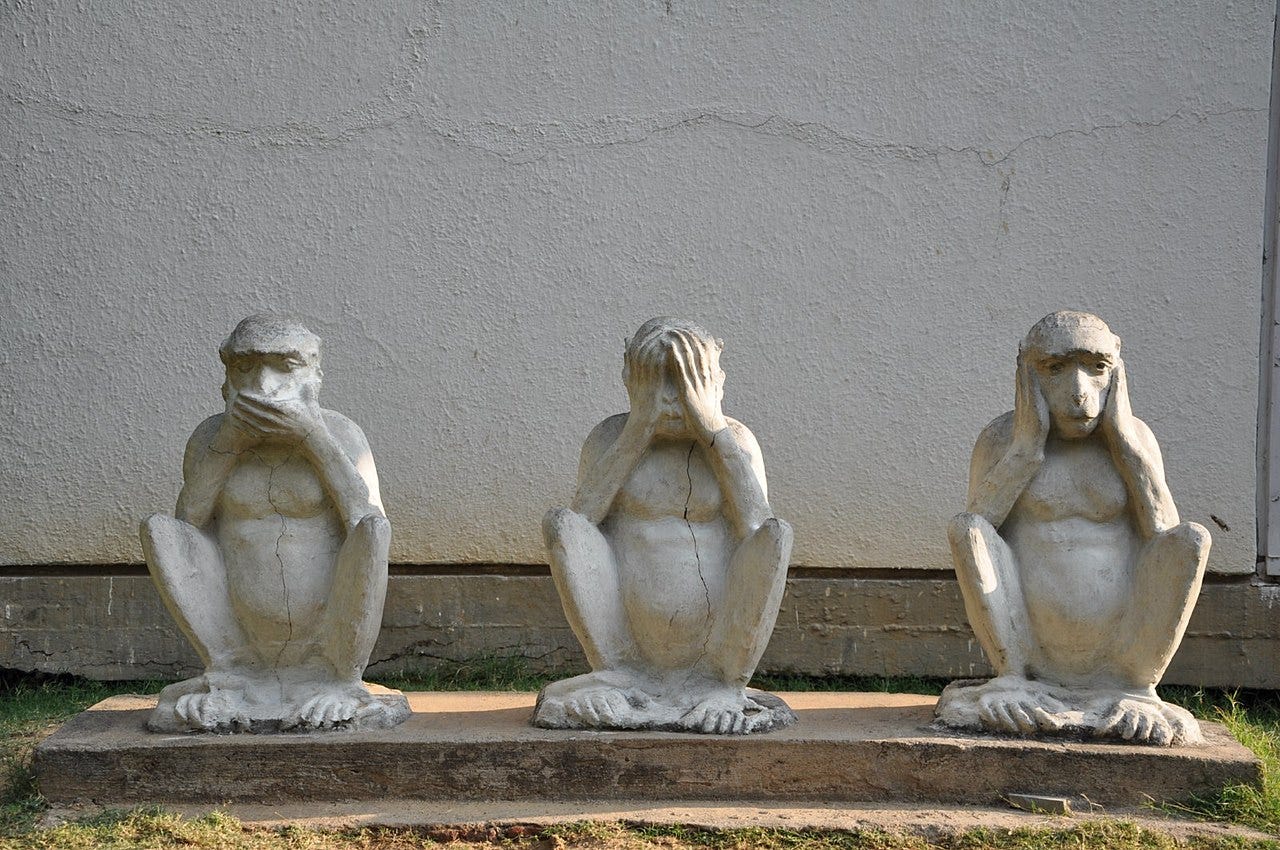When is ignorance the best strategy?
Some researchers claim that we know enough to know that Solar Radiation Modification (SRM) is a bad idea and that research into it should be ended. So, when is it better to not know?
Researchers, and the societies they serve, generally believe that it is better to know something than to not know it. There are exceptions, though.
Some knowledge is dangerous because it unlocks dangerous capabilities. The secrets of the nuclear bomb were closely, if unsuccessfully, guarded by the USA for obvious reasons. Similarly, there is great concern around large language models and the potential for them to grant dangerous knowledge to nefarious actors. We probably shouldn't all know how to brew up deadly nerve agents or how to make deadly viruses more transmissive.
There are also things that are perhaps better left unknown, because of the negative social consequences that might follow. For example, should we pursue research to precisely measure and rank the IQs of different races? Even if there are such differences, would it really be worth discovering and promoting them? I think not.
And there are times when we know enough to dismiss ideas and end research into them. The USA invested significant time and effort exploring the possibility of nuclear powered aircraft in the 50s and 60s. The advantages would be enormous: an aircraft which could fly at supersonic speeds indefinitely without refueling!? However, the trade offs between weight and safety features meant they were too dangerous to fly and the project was abandoned.
Figure 1. The NB-36H the only US aircraft to ever carry a nuclear reactor (source) and the end of the “slippery slope”.
SRM: a dangerous idea?
Some argue that it would be best to end research into SRM, and there are a few arguments advanced for this position, let's run through them.
First, and, in my view, weakest, is the argument that research has already shown that SRM is too environmentally risky to consider further. The fact is that research to date suggests that most forms of SRM look promising in terms of their environmental consequences, or at least potentially promising.
That said, we have learned enough to disqualify one form of SRM: desert albedo geoengineering. It seems likely that deploying this at climate altering scale would lead to catastrophic reductions in monsoon rainfall (as compared to the modest reductions seen in simulations of SAI).
We have everything we need to achieve world peace
Another argument can be summarized as follow: "We have everything we need to meet our climate goals, so SRM is just a distraction." while a handful of optimists still cling to the mantra that "1.5 is still alive", it is clearly slipping out of reach. even under the UN’s most optimistic scenario there is only a 14% chance of limiting warming to 1.5C, and countries’ emissions commitments are a long way off this ambitious track (UN Emissions Gap Report, Table 4.4).
As I've heard Ken Caldeira put it: "We have everything we need to achieve world peace; everyone just needs to lay down their arms". This is true, in an abstract sort of way, but its clear that the technical requirement of world peace - the laying down of arms - isn’t the limiting factor.
So it is for emissions cuts. While its technically possible to achieve our climate goals through mitigation alone if we put aside all other concerns. To hope the world does so is a pious wish. And this pious wish is no likelier to come true tomorrow than it was 18 years ago when Paul crutzen first argued for considering SRM (emissions have risen over 15% since then, Figure 2).
Figure 2. Global CO2 Emissions. Figure 4a from the Global Carbon Budget 2023.
We judge that it would work out badly, so you shouldn't know about it
Third, there are a set of arguments regarding the negative social and political implications of SRM that are used by some as justifications for ending research. The claim is that they (a subset of uniquely qualified researchers) know enough to be confident that it would have bad outcomes and so they recommend that the international community plugs its ears so that we don’t learn more about this dangerous idea (Figure 3).
Figure 3. The 3 wise monkeys who speak no evil, see no evil, and hear no evil (Source).
When it comes to physical risks we can often make fairly robust claims. For example, there are climate model simulations showing the catastrophic monsoon impacts of desert albedo geoengineering that I mentioned earlier, and solid theoretical explanations for those results. As such, we can be confident that desert albedo geoengineering is probably a bad idea.
For socio-political risks, however, we're on much shakier ground. Can we be confident that SRM would catastrophically undermine emissions cuts, lead to geopolitical conflict, or fail to be maintained in the long run? Any of these might occur in the future, but these aren’t the kinds of things that can be accurately predicted in advance.
Could such possibilities justify ending research? Perhaps some find such arguments persuasive, but before we throw this idea out we should consider the alternative.
Could the impacts of climate change, that SRM might alleviate, not bring similar or greater socio-political risks? Could climate impacts make it harder to achieve our emissions goals, lead to geopolitical conflict, or threaten the vital infrastructure and other systems on which our lives and livelihoods depend? There are good reasons to think so.
Ignorance is not the best strategy
Some would have you believe they know enough to know SRM would be misused or lead to bad outcomes and so we should stop studying it and no assessments should be reported to international bodies. Hundreds of academics, including some climate scientists, have signed an open letter making this case.
I think this is a mistake.
While there are some cases where ignorance is the best policy, I can't accept that this is the case here. Climate change poses such a grave risk it would be foolish to take promising ideas off the table without much more scrutiny and without contrasting it with the risks it might help avoid.
When the suffering of so many is at stake, ignorance is not the best strategy.
FIN.







Excellent Pete! It’s so very important to understand the possible effects of SRM and make decisions knowing the real benefits and potential harms.